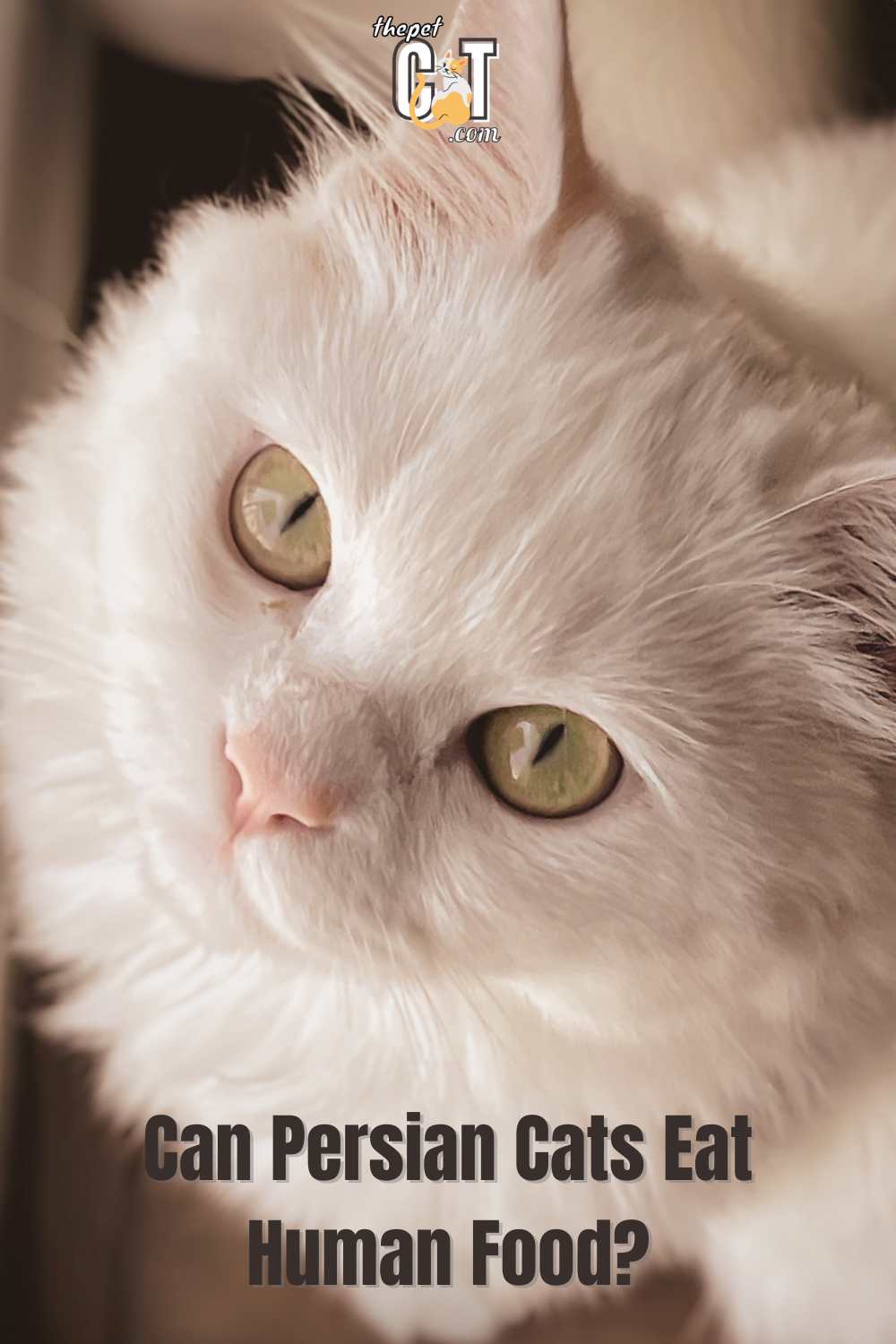Yes, your furry persian cat can eat some human food like chicken, turkey, peas, carrots, etc. But, remember not all food it can consume some are toxic to it like coffee, citrus, some dairy or raw veggies, onions, etc. Even those are safe for it, you can’t feed it loaded. Maintaining quantity is key to a cat’s well-being.
Sharing your food with your pet is adorable. But a Persian’s demand and digestive system are different. So, it can’t consume everything from your plate. For its well-being, such questions often arise: What Human Foods Can Cats Eat And what not? Can Persian cats eat human food?
This article will give 17 common food ideas you can share with your Persian including 17 toxic item ideas to avoid.
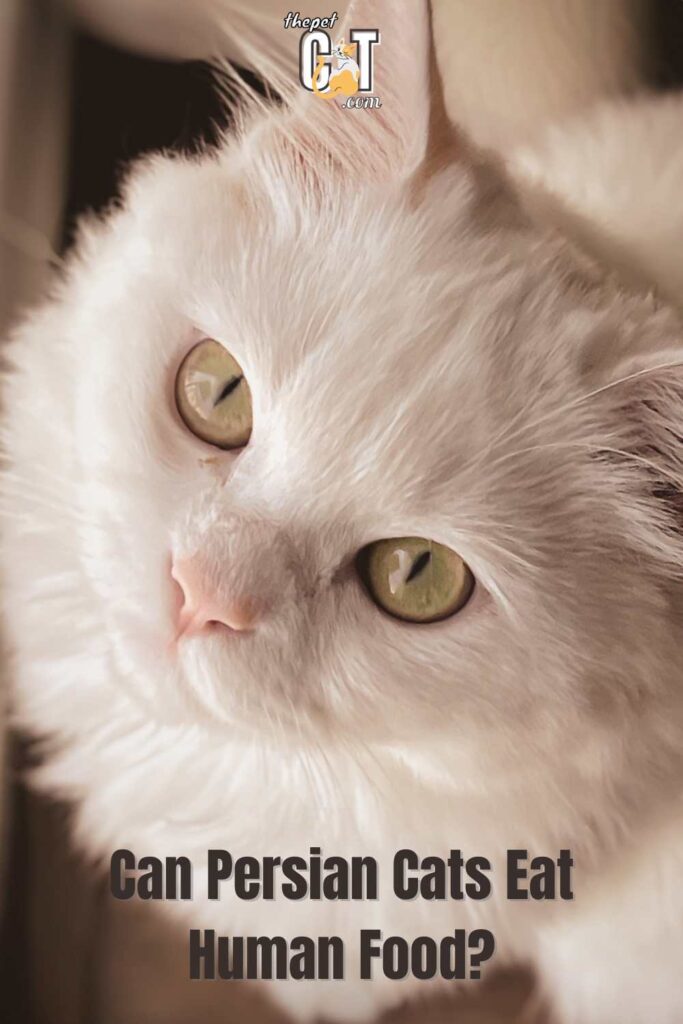
17 Human Foods That Are Safe for Persian Cats
Check what food you can share with your Persian from your diet.
1. Turkey
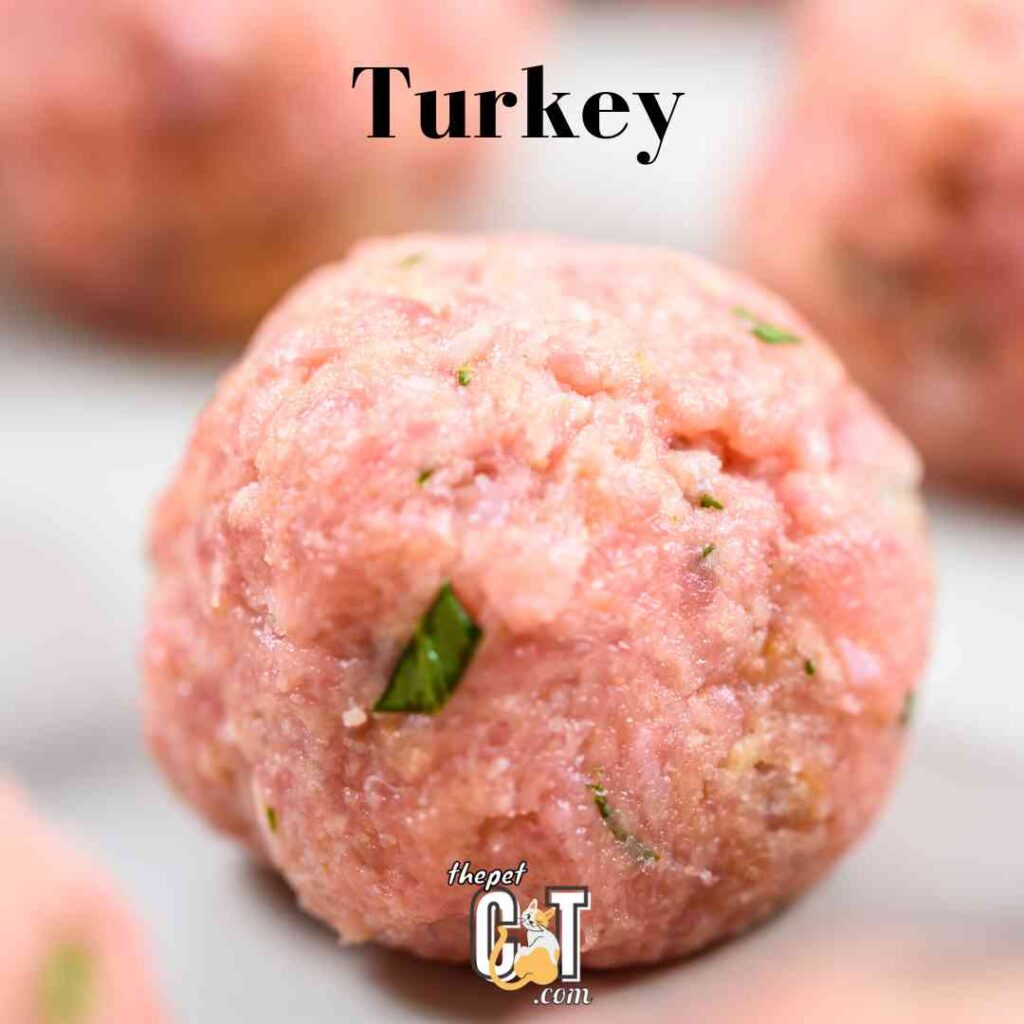
Turkey is a bird whose meat is safe for Persian cats. This feeding bowl for Persian cats has lean protein and necessary nutrients. Add finely shredded cooked turkey to their normal food for a delicious twist. Always monitor their reaction and consult your vet on incorporating turkey into their diet.
Offer your cat 10% less portion than its daily calories. And you need to ensure it’s cooked but seasoning and bones-free.
2. Chicken
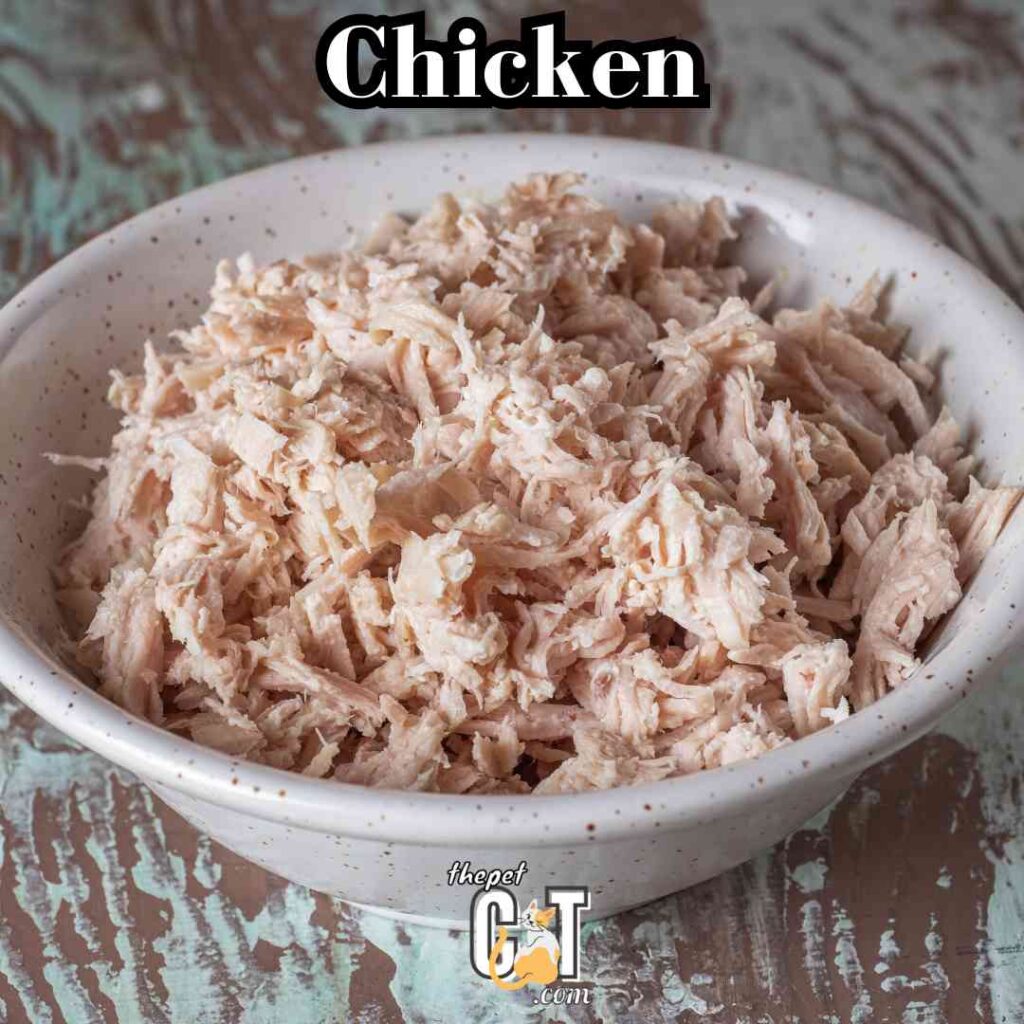
Chicken is a type of bird commonly raised for its meat and is enjoyed worldwide. It is a popular protein source in human diets and pet foods.
It is adaptable, lean, and full of protein. Moreover, it provides vital amino acids. This is a great supply of protein and the best food bowl for Persian cats.
While feeding cats chicken, pick 10-15% portion of its total calorie demand. Then divide it and feed it through the day. Cooked chicken pieces without bones or skin. You can add it to their normal food or serve it as a treat. Watch how they like it and ask your vet for advice.
3. Beef
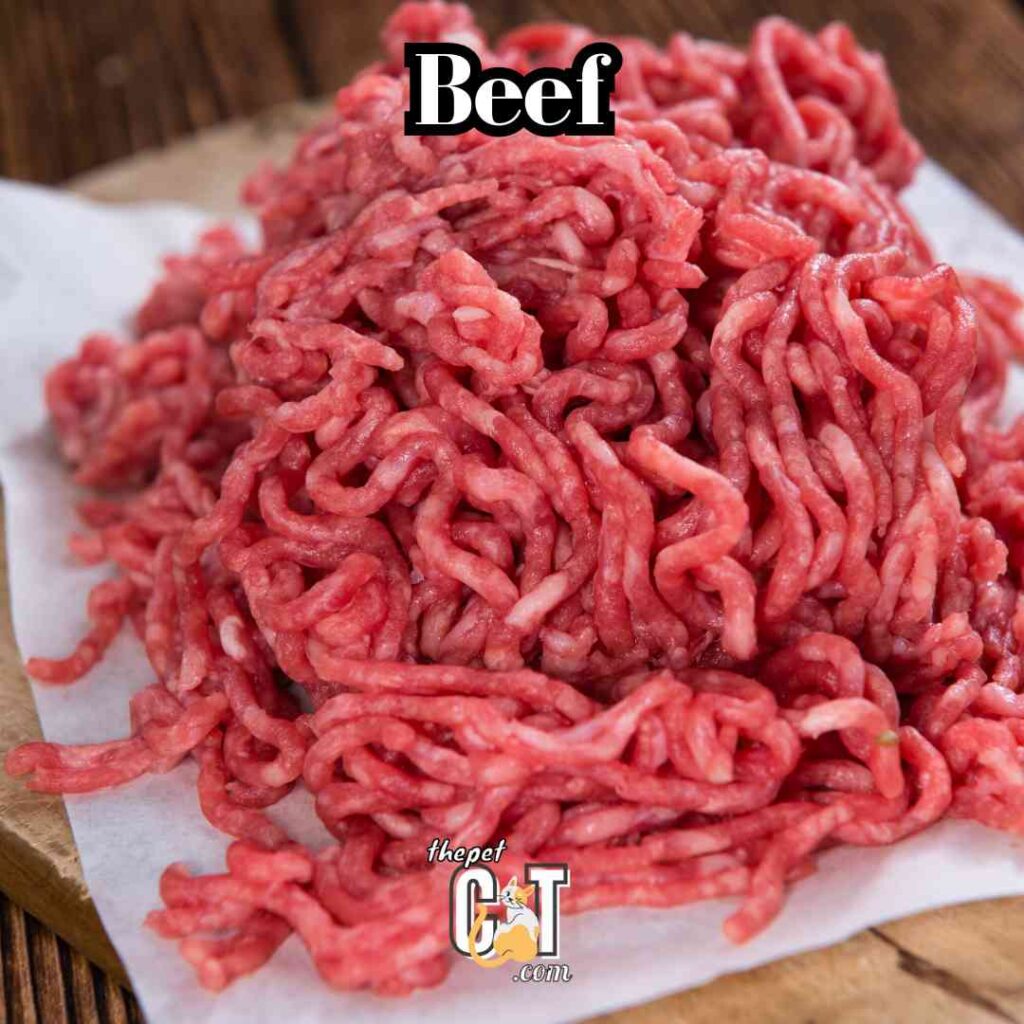
Another amazing source of protein and essential minerals is beef. It provides lean, cooked meat in tiny, bite-sized bits for occasional treats. However, though your carnivorous cat may like to have meat, a moderate feeding schedule for cats is key to improving health.
For your Persian cat feeding, serve cooked and lean beef in small, bite-sized portions. Ensure it’s boneless and free of spices. You can serve it as a treat or add a small quantity to their typical homemade cat food for flavor.
4. Salmon
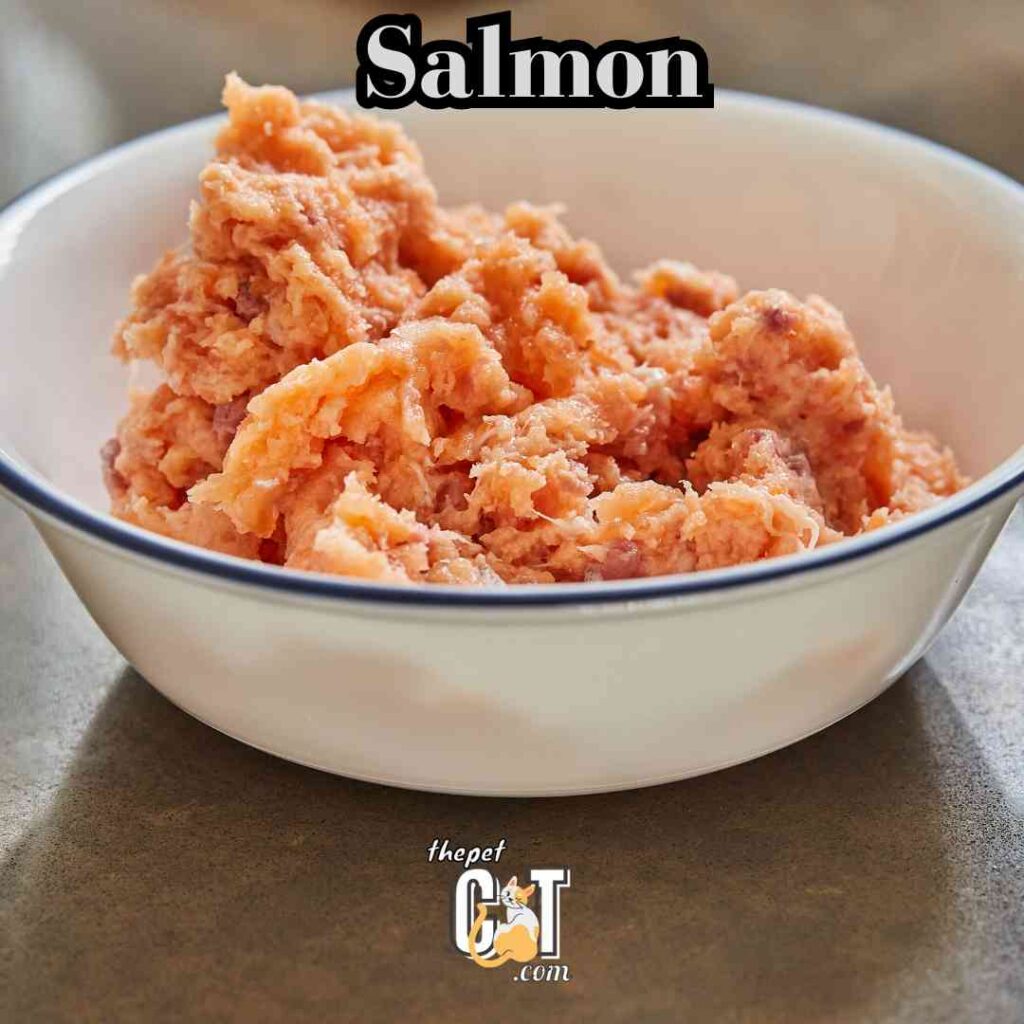
Salmon is a healthy and nutritious option for your Persian cat’s diet. It is Loaded with omega-3 fatty acids. So, it promotes healthy coats.
Serve small(10-15%), cooked, and boneless pieces of salmon as a special treat per week. You can also mix it with their regular cat food for added flavor. Always make sure it’s clear of any seasoning.
5. Rice
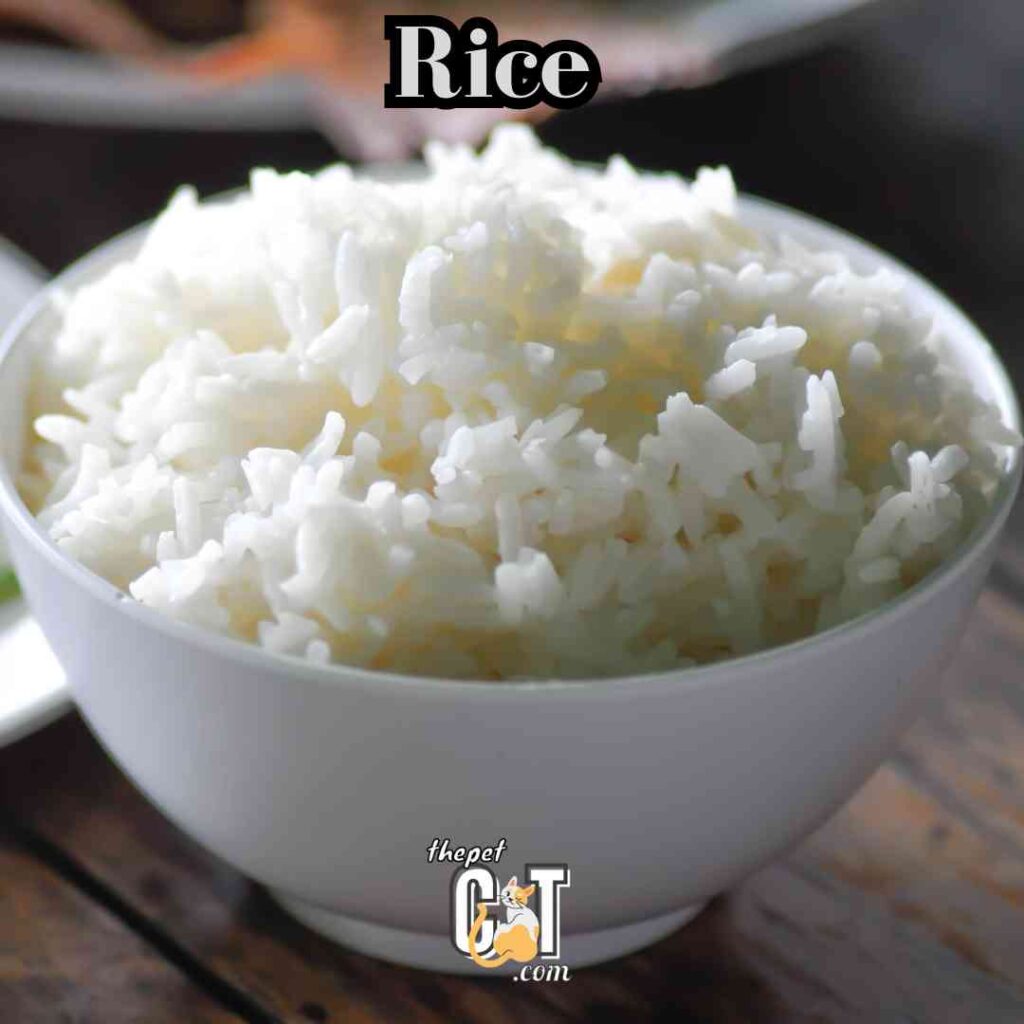
Rice, a grain, is a safe supplement to the Persian cat diet. It gives energy through carbs and contains critical vitamins and minerals. It’s easy to digest and can be combined with wet food for a nutritious dinner.
Serve cooked plain rice to your cat as a part of their meal. But not more than 25% of your pet’s total food. Otherwise due to over intake, it can cause vomiting or indigestion.
6. Egg White
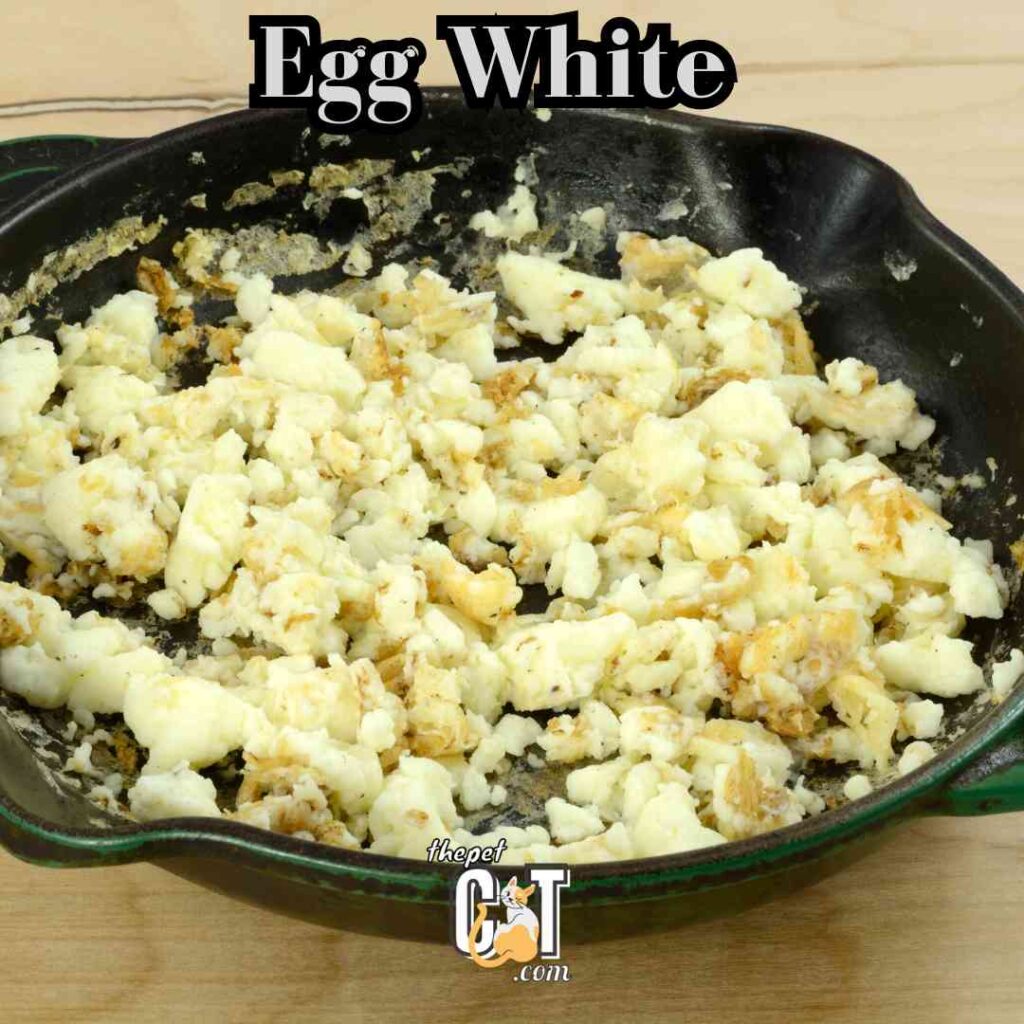
Eggs offer a safe and healthful treat for Persian cats. They provide beneficial nutrients like protein and vitamins.
Just cook the egg whites and give small pieces as a treat or mix with their regular food. As a usual 10-pound cat requires just approximately 150-200 calories per day, keep the serving amount limited to 15%.
Moreover, Keep an eye on how they like it. And talk to your vet for advice on including eggs in their diet.
7. Apples
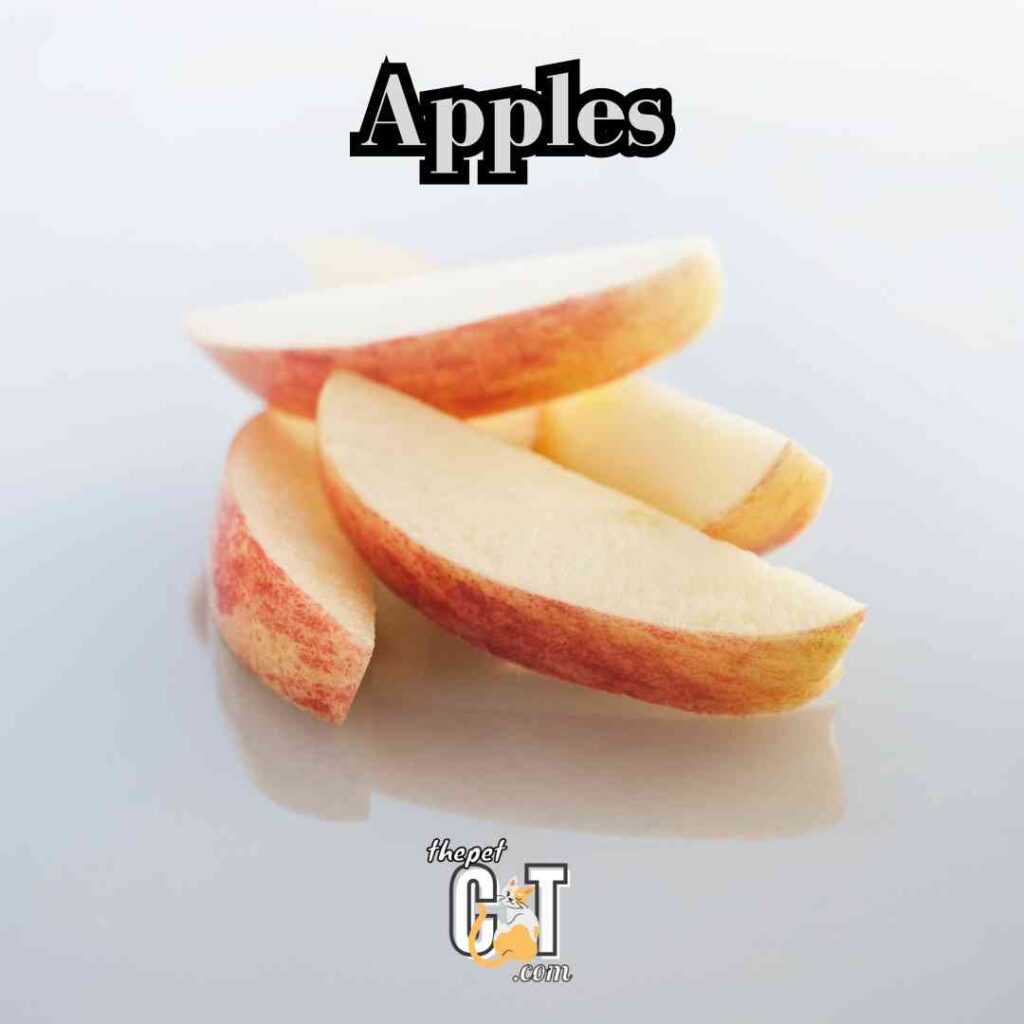
Apples are healthy fruits that people eat. They’re colorful and full of vitamins. While cats like Persian cats might not love them, they can still be good. You can feed them 1 or 2 pieces.
To make it healthy, slice them into small pieces. Or you can blend them with their cat food for a special, nutritious touch.
8. Bananas
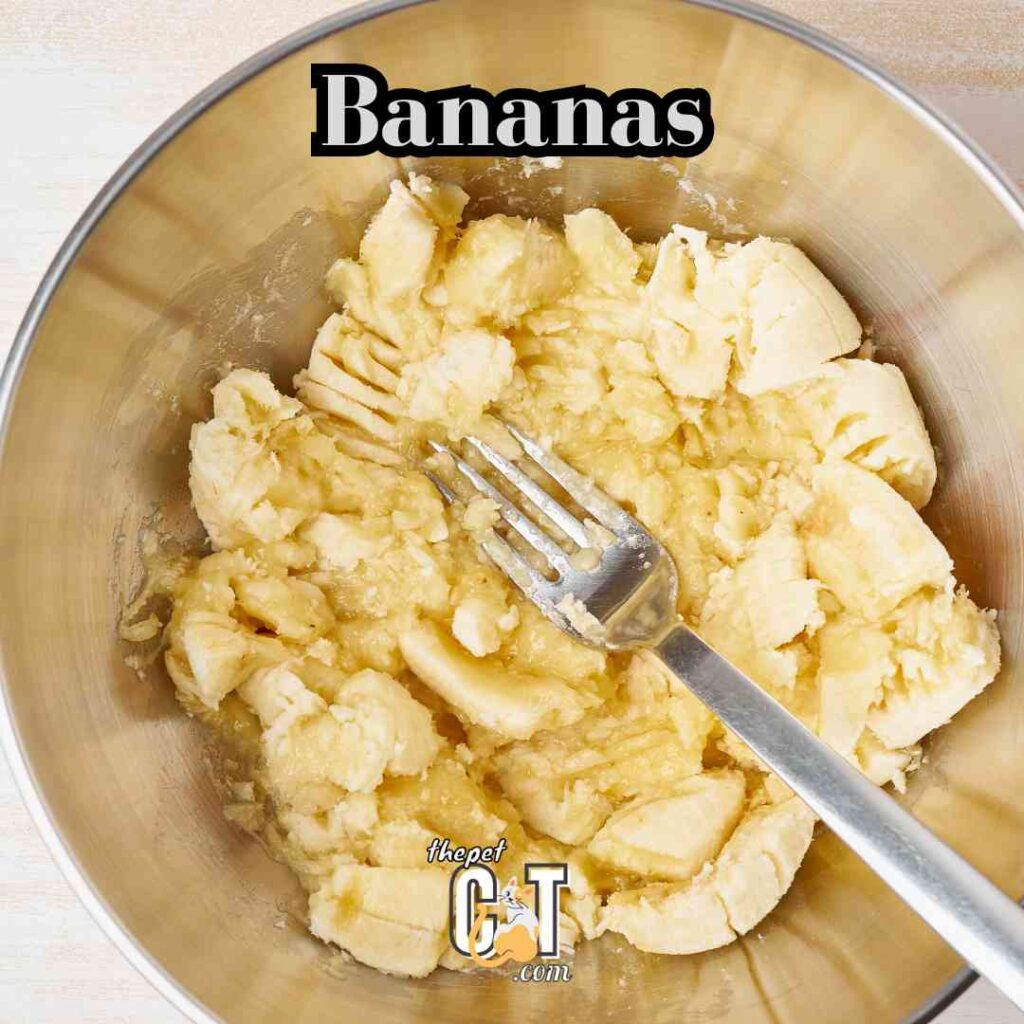
Bananas are fruits that people enjoy. They’re yellow and full of good things like potassium and vitamins. Persian cats might not like it too much. But a little portion like 1 thin slice sharing with it occasionally will not harm it.
If they like it, give them tiny pieces or mash it up and mix it with their cat food for a special, healthy treat.
9. Blueberries
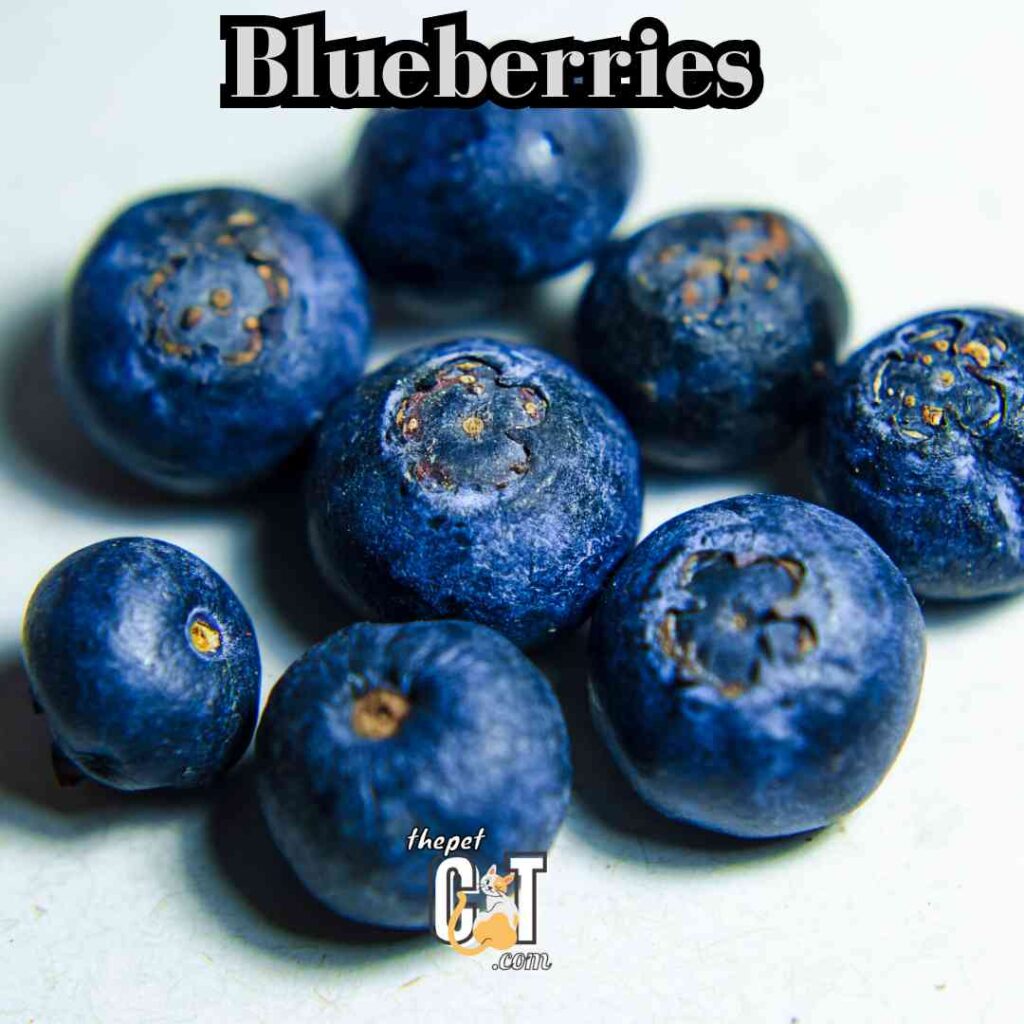
Blueberries are safe and tasty treats for Persian cats. These small fruits contain antioxidants, vitamins B6 and C, dietary fiber, and manganese.
Offer these raw or prepared as a nutritious addition to your cat’s diet. Since cats often love their sweet flavor, blueberries make for delightful and nutritious treats. However, for a safe portion, you can go with 2 or 3 berries at once.
10. Peas
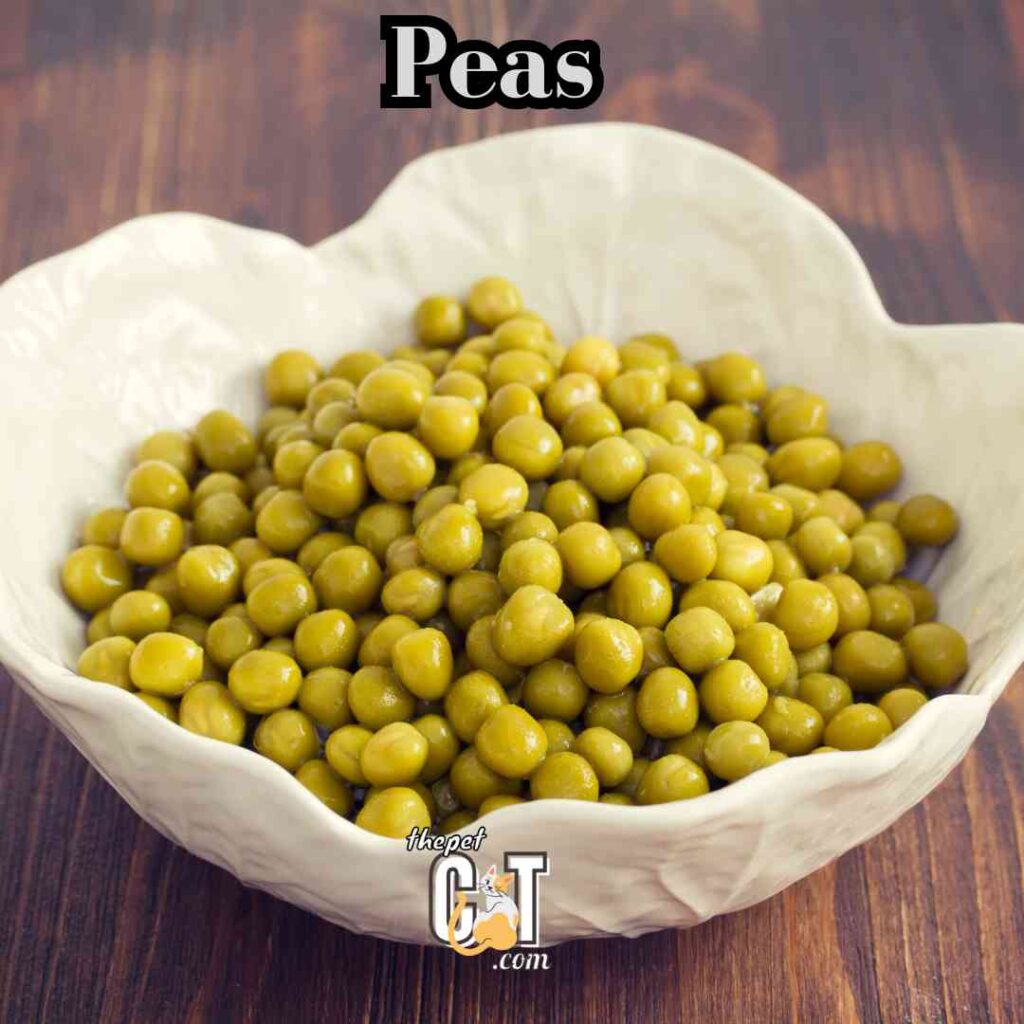
Feeding your cat, peas like garden peas or sugar snap peas can be good for their health. These peas are packed with nutrients like iron, potassium, and vitamins B1, K, and C. They’re also low in calories and high in fiber. This helps with their digestion.
To serve, just boil or steam them without any seasoning. You can serve it regularly. It’s safe but not more than 10% a day. As other nutrition portions should be kept for 90%.
11. Cauliflower
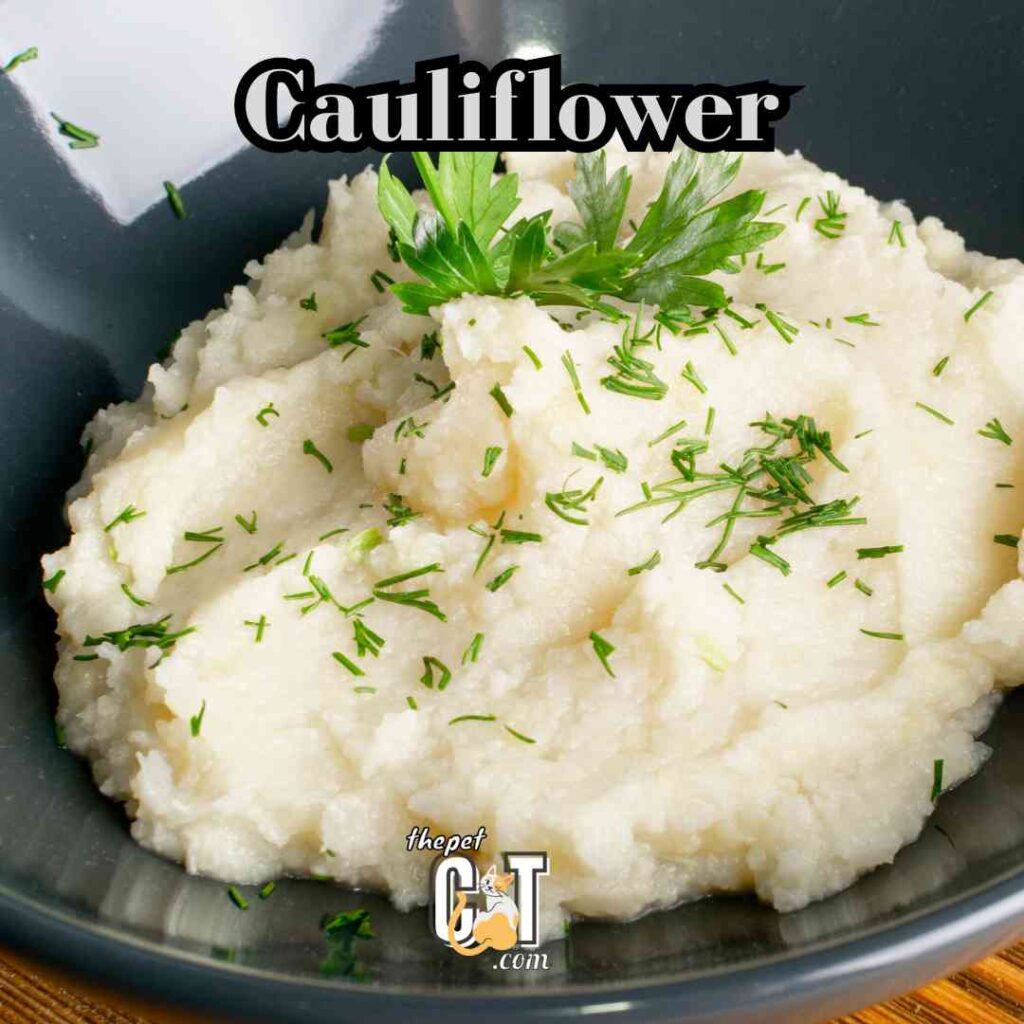
Cauliflower has a dense, flowering head. It contains nutrients such as vitamin C, fiber, and antioxidants.
While safe for humans, introducing cauliflower to a Persian cat’s diet should be done cautiously. You offer 10% steamed, plain pieces and observe your cat’s reaction. And kindly avoid raw ones.
12. Green Beans
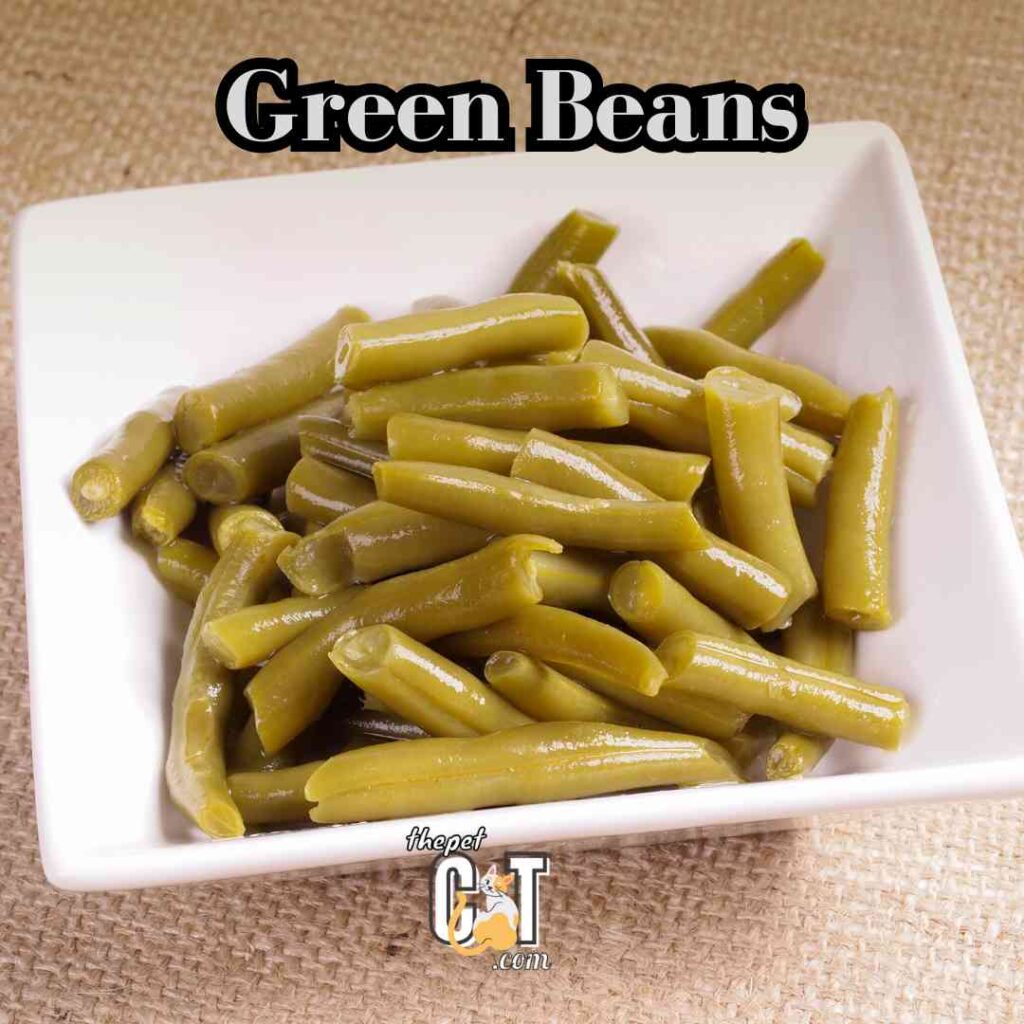
Green beans are suitable for Persian cats and include vitamins and fiber. It’s a healthy option, offering nutrients without excess calories.
An adult cat appropriately can intake safely ½ cup or 4-5 chopped beans. But ensure the bowl is boiled. Then you can serve it as treats or mixed with cat food. For health and well-being, ensure they’re plain and free from seasoning.
13. Broccoli
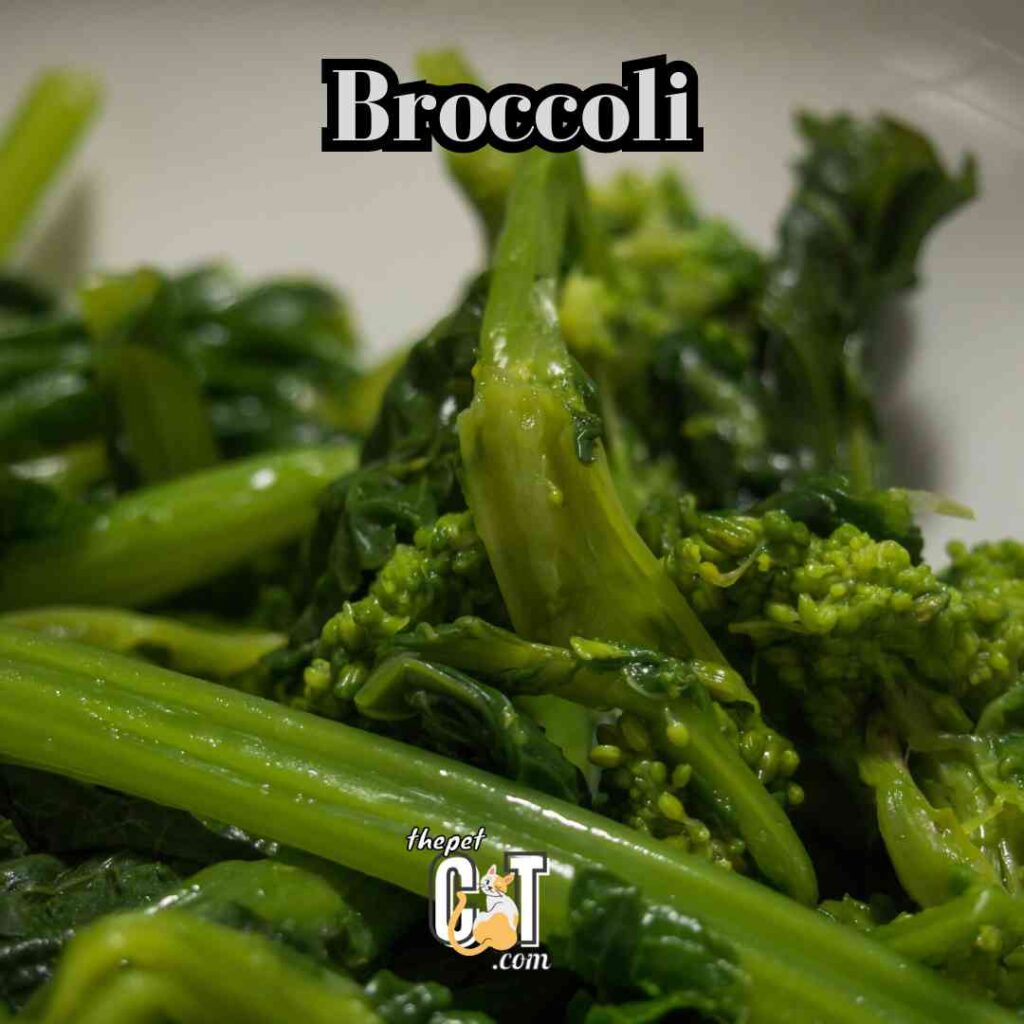
Broccoli is a green vegetable. It can be safe for Persian cats. It’s a nutritious addition due to its high vitamin, mineral, and antioxidant content.
You can serve cooked 10% broccoli 1 or twice a week. You can mix them with their cat food for variety. To make it healthier, keep it plain without any seasonings.
14. Pumpkin
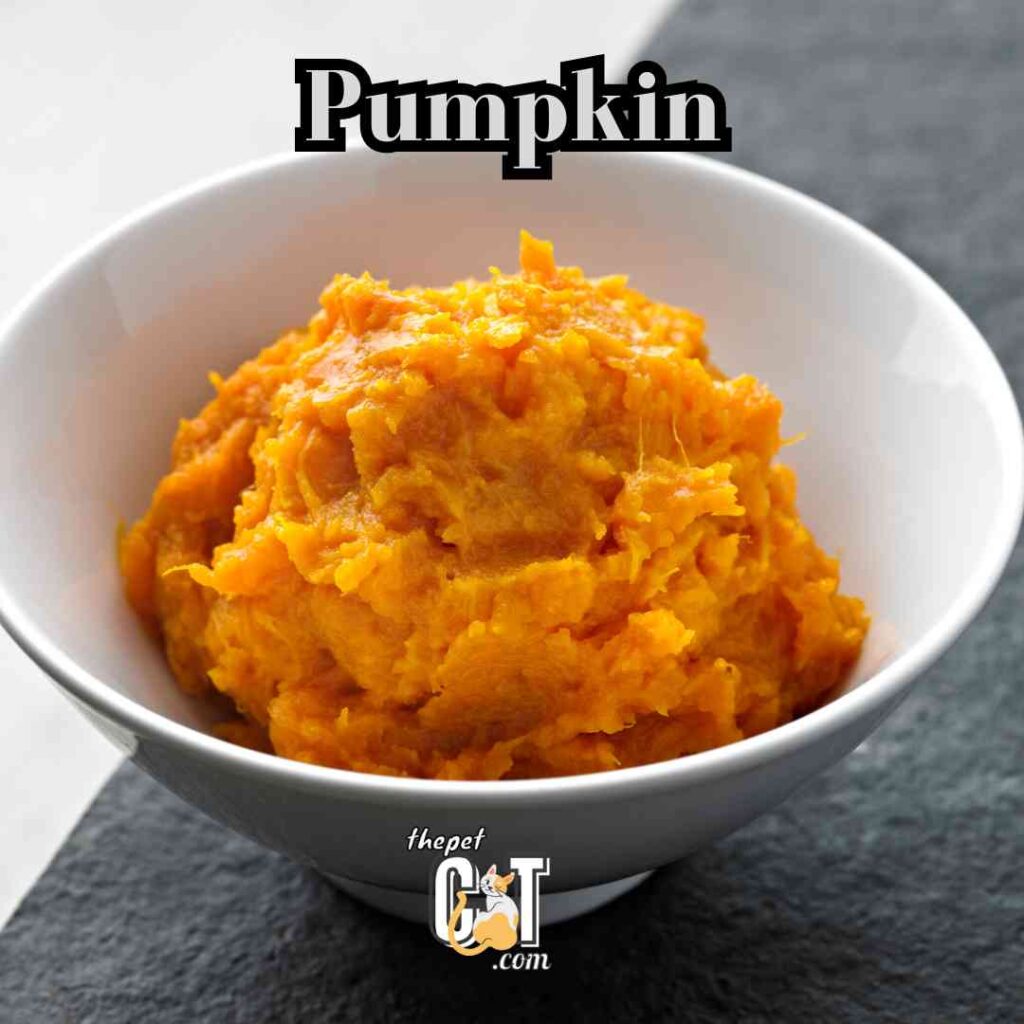
Pumpkin is a safe and healthy addition for Persian cats. Rich in fiber and essential nutrients. These vegetable food bowls for Persian cats support digestive health.This can aid in preventing hairballs and promoting overall well-being.
If you pick canned pumpkin food for your pet, you can feed 2-4 teaspoons. This portion you can divide and feed it twice a day. For smaller kittens ½ teaspoon is fine.
15. Carrots
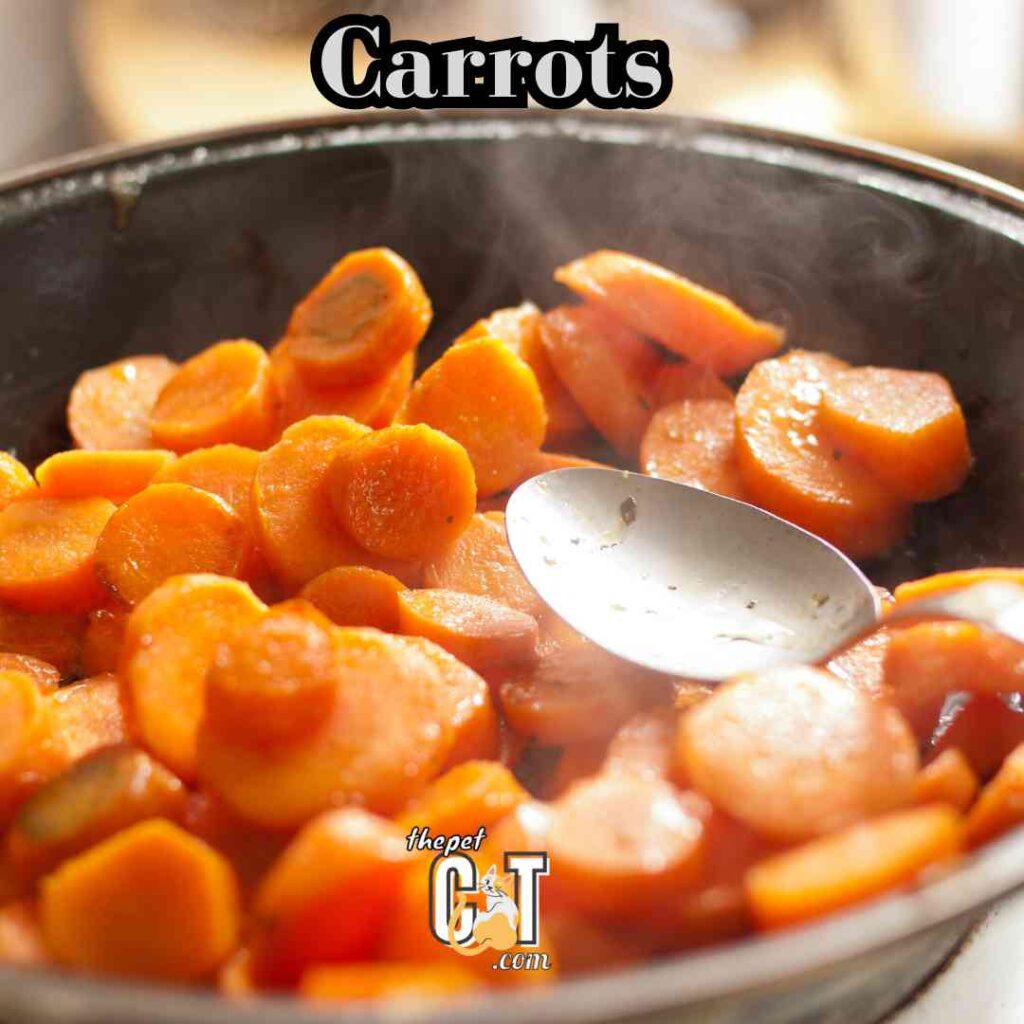
Carrots are safe for Persian cats. It offers a crunchy and healthy treat. It is packed with vitamins and beta-carotene. They promote eye health.
Cooked carrot pieces as an occasional snack every few weeks is fine. But don’t serve it more than 5 gm a day. Moreover, to enhance health, you need to offer plain carrots without seasoning.
16. Spinach
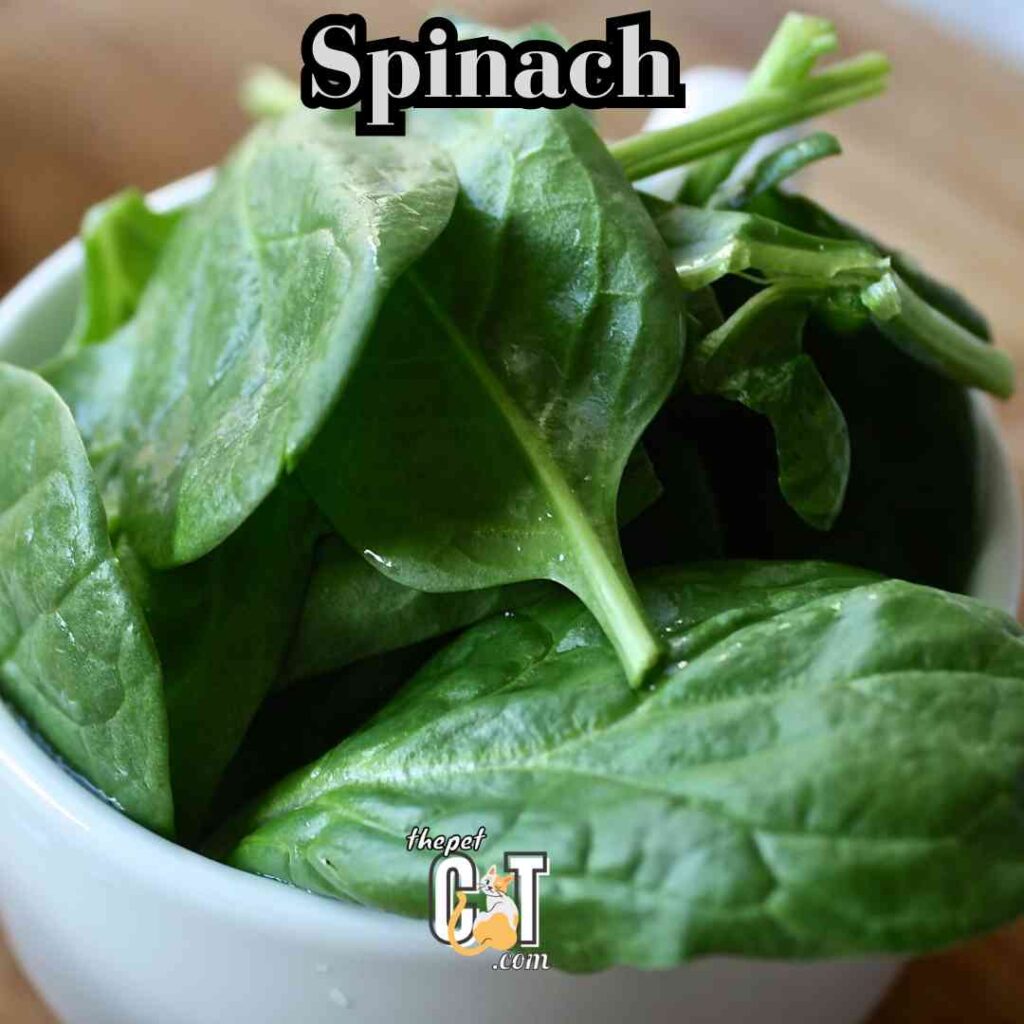
Spinach is healthy for Persian cats. It contains iron, vitamins A and C, and antioxidants. It promotes vision and immune health.
You can Provide 1 spinach serving (10%) a day to avoid excess fiber. It’s a healthy addition to their diet but keep in mind don’t feed it excessively. Moreover, if your cat is suffering through oxalate bladder stones, you should avoid spinach. You can get advice from your vet about it.
17. Yogurt
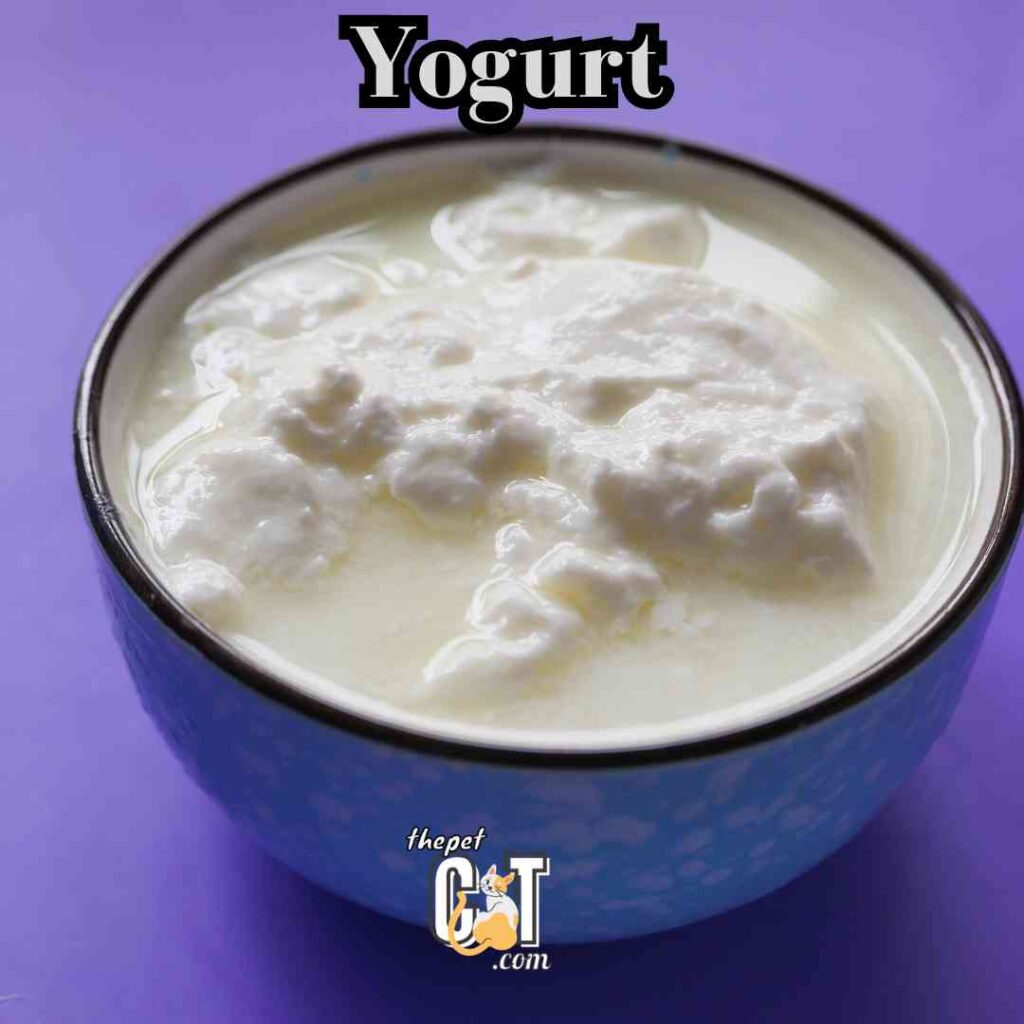
Yogurt is a dairy-based item derived from fermented milk. It is often with the addition of beneficial bacteria. It features a cream texture and contains probiotics, calcium, and protein.
While yogurt can be a healthy treat for humans, not all cats tolerate dairy well. So, it’s crucial to consult your veterinarian.
If your cat enjoys this without any issue, you can feed it 1 teaspoon. Don’t increase the portion amount.
17 Toxic Human Food for Cats
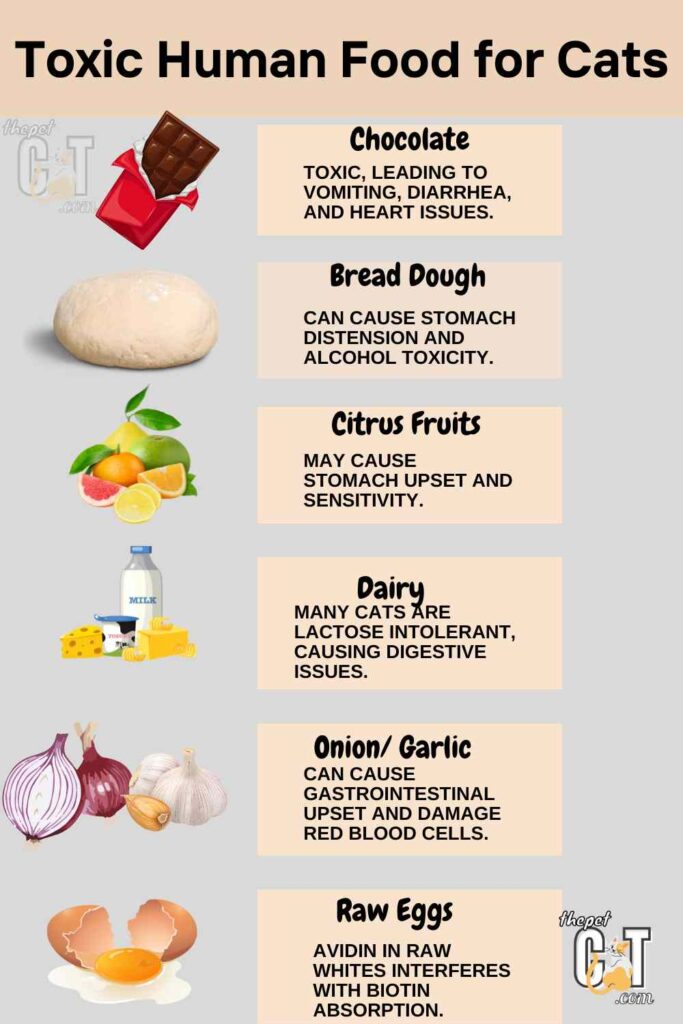
Check out this list of 17 common items often found in our kitchens. Learn about their harmful components and their risks to your feline friend. Keep scrolling to keep your Persian cat safe and sound.
| Food | Harmful Component | Potential Harm to Persian Cats |
| Bread Dough | Yeast | Can cause stomach distension and alcohol toxicity. |
| Chocolate | Theobromine | Toxic, leading to vomiting, diarrhea, and heart issues. |
| Coffee | Caffeine | Can cause rapid heartbeat, restlessness, and tremors. |
| Citrus Fruits | Citric Acid | May cause stomach upset and sensitivity. |
| Coconut Flesh/Water | Coconut Oil | High fat content can lead to pancreatitis. |
| Dairy | Lactose | Many cats are lactose intolerant, causing digestive issues. |
| Grapes/Raisins | Unknown toxin | Can cause kidney failure, even in small amounts. |
| Nuts | Various toxins | Macadamia nuts, in particular, can be harmful. |
| Raw Eggs | Avidin in raw whites | Avidin interferes with biotin absorption. |
| Raw/Undercooked Meat | Bacteria, parasites | Risk of bacterial contamination and infections. |
| Raw Fish | Enzyme Thiaminase | Can lead to a thiamine deficiency. |
| Salt | Sodium | Excessive salt can cause electrolyte imbalance. |
| Vegetables/Herbs | Varies | Onions and garlic can be toxic; others may cause digestive issues. |
| Xylitol | Sugar substitute | Can cause insulin release, leading to hypoglycemia. |
| Onion | N-propyl disulfide | Can cause anemia and damage red blood cells. |
| Garlic | Allicin | Can cause gastrointestinal upset and damage red blood cells. |
| Raisin | Unknown toxin | Even small amounts can lead to kidney failure. |
FAQs
What Human Food Can Cats Eat Everyday?
Cats can have everyday foods like cooked chicken, turkey, and lean beef. Eggs and cooked veggies like peas or carrots are okay, too. Just keep it plain with no seasonings. Consult your veterinarian for guidance on maintaining a balanced diet.
Can Cats Live Off Human Food?
No, cats cannot live off human food alone. They require a balanced diet designed for their specific nutritional needs. While some human foods can be safe treats, relying solely on them can lead to nutritional deficiencies and health issues. So, consult your vet for the best diet plan for your cat.
How Much Wet and Dry Food to Feed a Cat Persian?
For a Persian cat, feed about 1/2 to 3/4 cup of dry food each day, divided into several meals. Do the same with wet food throughout the day. It’s a general guide. You can consult your feline’s vet and follow the cat feed schedule to ensure a proper diet.
Is Tea Good for Persian Cats?
No, tea isn’t good for Persian cats. Regular tea contains caffeine, which may be dangerous. Some herbal teas may be safe, but see your veterinarian first. Cats usually don’t need tea in their diet.
Final Verdict
Sharing food with your Persian pal can be fun, but be cautious! Persian cat food bowls should be maintained with care and attention. This guide lists 17 safe human treats like cheese, chicken, and carrots alongside 17 toxic items like grapes, garlic, and onions.
Remember, moderation is key. So, follow a proper cat feeding schedule. And always consult your vet before introducing new foods, and stick to their expert advice for a purrfectly healthy and happy Persian!
You May Also Like to Read:

